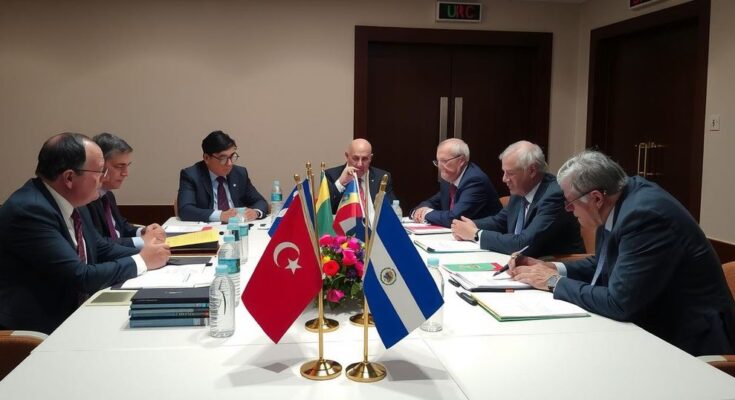During a meeting in Montevideo, Dilma Rousseff encouraged Uruguay to join the BRICS New Development Bank, highlighting its favorable lending terms. Uruguay’s membership process is nearing completion, pending Congress approval. President-elect Orsi showed interest in collaboration while clarifying that Uruguay would not seek BRICS bloc membership. He acknowledged the importance of exploring diverse financial support options amid a complex global landscape.
In recent discussions held in Montevideo, former Brazilian President Dilma Rousseff, currently at the helm of the BRICS New Development Bank (NDB), actively advocated for Uruguay’s membership in the institution. During a meeting with President-elect Yamandú Orsi on December 27, Rousseff emphasized the favorable lending conditions of the NDB compared to the International Monetary Fund (IMF), stating, “Uruguay is perfectly positioned to be given credit.” She underscored that the NDB operates without imposing macroeconomic conditions. Rousseff noted that while the membership process is almost finalized with approval from the board of governors, it still awaits the assent of various institutional bodies, including Congress.
Rousseff also highlighted the significance of the NDB’s strategic expansion beyond its original BRICS members. “For us, it is important that Uruguay participates in the bank,” she expressed, mentioning plans to extend membership opportunities not only to countries in Central and South Asia and the Middle East but also to additional nations in Latin America. President-elect Orsi, set to take office on March 1, acknowledged the potential for collaboration, albeit clarifying that Uruguay would not pursue alignment with the BRICS bloc, unlike Argentina, which has distanced itself following the election of Javier Milei.
Orsi appreciated the NDB’s support for southern nations, remarking that it is essential in a rapidly evolving global landscape. He stated, “Today’s world is complex, and opportunities for resources, financing, and support should not be overlooked.” Although focused on establishing a working relationship with the NDB, Orsi highlighted the importance of also engaging with other traditional financiers such as the Inter-American Development Bank. The meeting attended by Alejandro Sánchez, Orsi’s international affairs adviser, and other future cabinet members, accentuated the collaborative direction of Uruguay’s financial strategies moving forward.
The BRICS New Development Bank (NDB) was established by the BRICS nations—Brazil, Russia, India, China, and South Africa—to support public or private projects through loans, guarantees, equity participation, and other financial instruments. The NDB is seen as an alternative to the International Monetary Fund (IMF) and the World Bank, particularly for emerging economies. The bank aims to promote sustainable development and enhance economic collaboration among its member countries. Uruguay’s potential membership reflects a broader initiative to include additional countries in its strategic expansion, particularly in Latin America and beyond, aligning with global economic trends.
In conclusion, the discussions between former Brazilian President Dilma Rousseff and President-elect Yamandú Orsi regarding Uruguay’s membership in the BRICS New Development Bank reflect a strategic move to bolster financial cooperation in the region. The NDB’s favorable lending terms are presented as advantageous compared to traditional institutions like the IMF. As Uruguay navigates its financial partnerships, there is an evident interest in exploring opportunities with the NDB while maintaining relationships with conventional lenders, emphasizing the need for diverse financial strategies in a complex global economy.
Original Source: www.intellinews.com




